Get to Know Cary Grant with These 11 Essential Movies
We were gonna go with 10 movies featuring Old Hollywood's most dashing gent, but how could we widdle this down further?
The Old Hollywood legend refined his screen talent into fine art. Grant is often cited as continually playing himself in films, and, yes, the career-long throughlines are unmissable, but he’s far from ever being one-note. Cary Grant the person and Cary Grant the performer — and the spacious center of the Venn diagram between the two — was dynamic and charming. He’s simultaneously mysterious and affable. To see him on screen is to at once know him and know there’s so much more than what’s seen at first glance. An open book rich with subtext, if you will.
Grant’s career spanned from the pre-Code era to the dawning of New Hollywood. As a result, deciding where to begin with his impressive filmography is quite a daunting task. Thankfully, we (that is, me and Anna Swanson) have assembled the highlights, the films that will appeal to newbies and aficionados alike. So whether you’re diving into Grant’s filmography for the first time or revisiting some classics, read on to find out what essential movies you can’t miss.
Merrily We Go to Hell (1932)
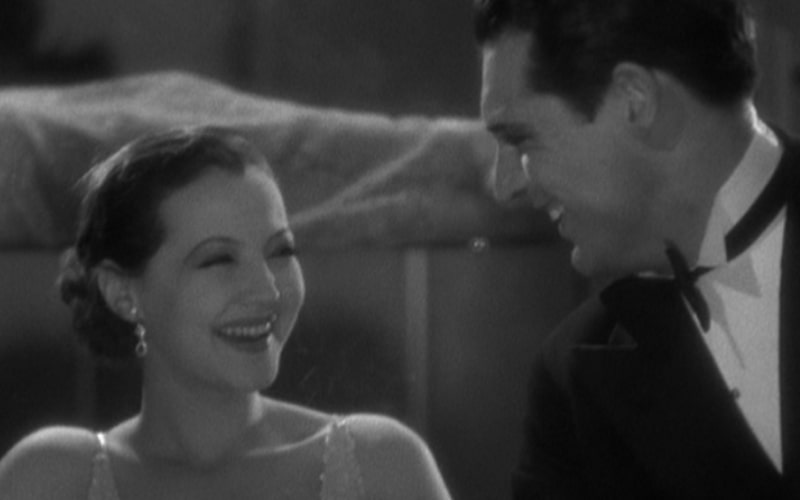
One of Grant’s early roles pairs him opposite the darling Sylvia Sidney in Dorothy Arzner‘s pre-Code romance Merrily We Go To Hell. Sidney stars as socialite Joan, who in revenge against her philandering, alcoholic husband, Jerry (Fredric March), begins her own affair with Grant’s character. It’s a relatively minor role, but Grant absolutely steals the show as the other man — an archetype he similarly excelled in with Josef von Sternberg’s Blonde Venus, released the same year.
Although Grant was still a few years away from being a household name, it’s easy to see why that was in his future. He’s charming and suave as he practically radiates on screen. His dashing character also makes for easy shorthand in the plot — we barely need to see him with Joan to understand immediately that Jerry better shape up and try to compete with the new catch on his wife’s arm. That he even stood a chance against Grant at all, well, that’s the magic of movies. (Anna Swanson)
I’m No Angel (1933)
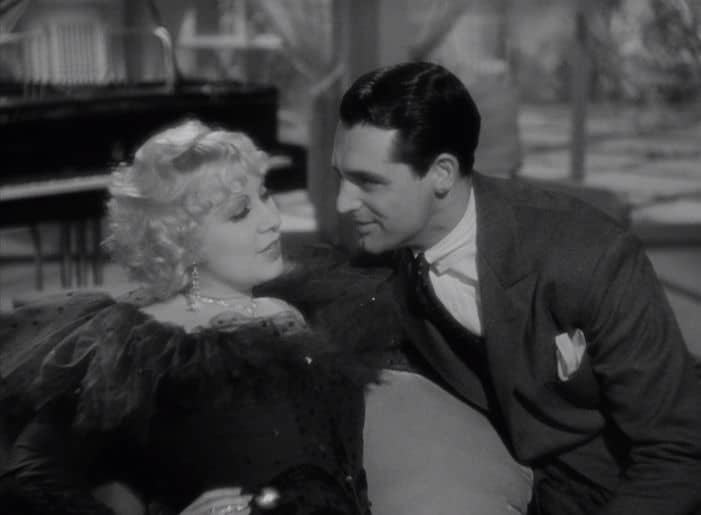
Before Grant solidified his star power as a comedic leading man, he co-starred in two films with sex-icon Mae West. These pre-Code gems include I’m No Angel, where Grant plays the rich man with whom West’s character finally falls in love after years of casual relationships with wealthy guys. However, her former beaus are not ready to give her up, and they do whatever they can to break up her engagement.
Grant comes into the film fairly late, but he makes a huge impact. After all, to be a man who ties down a Mae West character, Grant has to convince the audience he’s pretty damn remarkable. This early performance shows his ability to match the sexual energy of one of the most iconic seductresses in Hollywood history. He utters innuendos and raunchy dialogue with such ease. As the Hays Code came into power a year later and ruled Hollywood throughout the rest of Grant’s career, seeing him so explicitly sexual alongside West is a real treat to visit today.
The Awful Truth (1937)
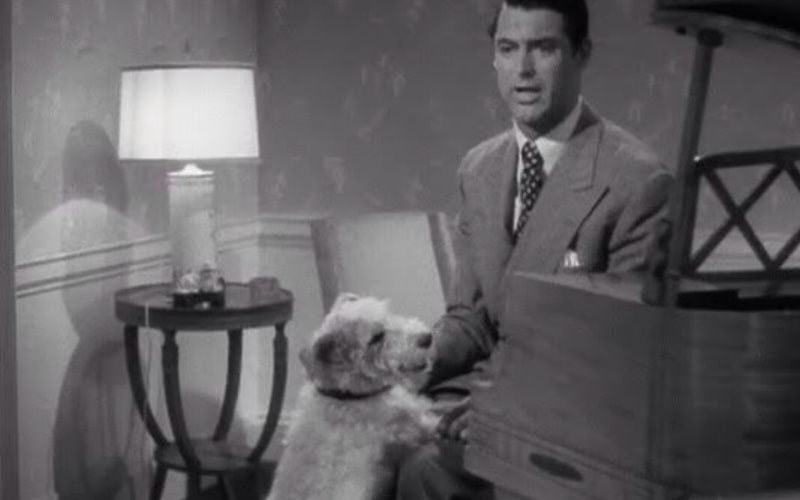
No Cary Grant list is complete without the inclusion of his three-time screen partner Irene Dunne. The Awful Truth is the first of their films together (the others are My Favorite Wife and Penny Serenade) and features Dunne and Grant in a comedy of remarriage as a feuding couple who won’t let some silly little divorce proceedings interfere with them being in each other’s lives — whether the other likes it or not!
Director Leo McCarey encouraged improvisation on the set, and the result is some top-tier comedy from both stars. With the electric chemistry between Dunne and Grant, the film is as romantically charming as it is genuinely funny. And for fans of The Thin Man, there’s a bonus treat as the film features the talents of Skippy the dog — a.k.a. Asta — as the beloved canine companion of Dunne and Grant’s characters. (Anna Swanson)
Topper (1937)
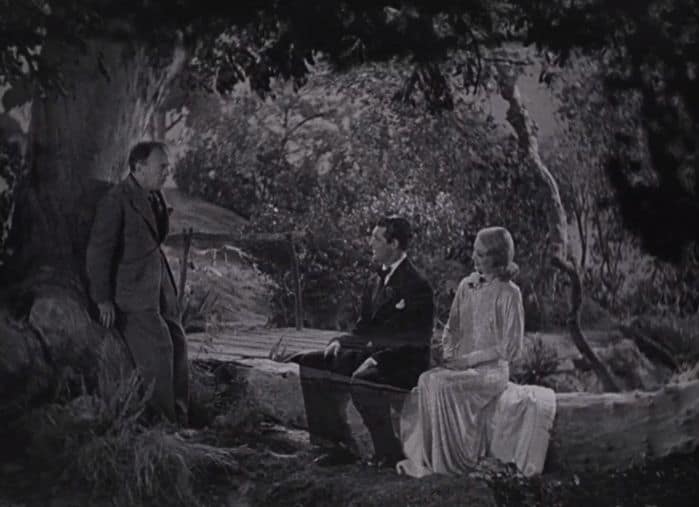
Grant needed to be convinced by Hal Roach that the role of George Kerby in his film Topper would be a huge hit. Roach succeeded, with the help of a little extra money, and Grant signed on to star alongside Constance Bennett. In the film, Kerby and his wife (Bennett) die, lightheartedly, in an automobile accident and get stuck as ghosts that haunt grumpy old man Cosmo Topper, played by Roland Young. Grant was concerned about the supernatural aspects of the movie since ghosts were a rarity in Hollywood films at the time. Well, they were rare in movies that were taken seriously by critics and audiences alike anyway.
Thankfully, Grant’s decision to go through with this silly little ghost comedy was a great decision. Audiences went crazy for the screwball antics of the Kerby ghosts and the successful special effects needed to achieve the supernatural aspects of the story. The movie was so popular it was followed by two sequels, the first including Grant and Bennett again. This fun comedy jump-started Grant’s involvement in screwball comedies and his status as an international movie star. He would be a minor character no more.
Only Angels Have Wings (1939)
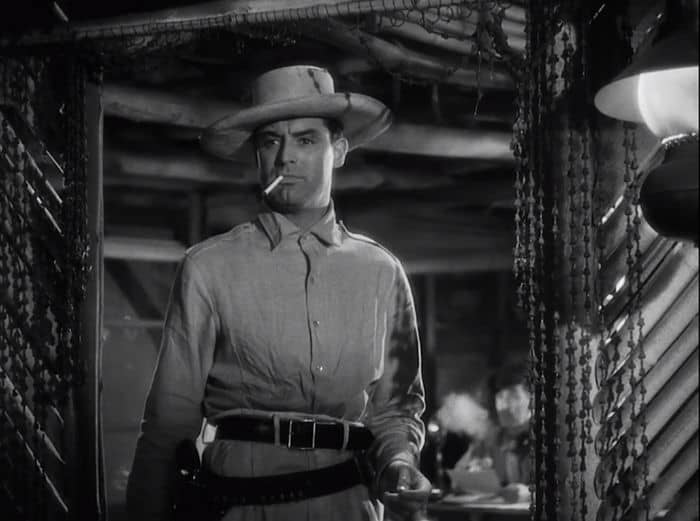
As one of five films Grant made with Howard Hawks, Only Angels Have Wings is distinctly different from their other strictly comedic collaborations. Grant stars as daredevil airplane pilot Geoff, who delivers cargo through a treacherous stretch of mountains in South America. Showgirl Bonnie (Jean Arthur) falls in love with Geoff, and his exciting bachelor life gets complicated. The arrival of another couple — a flyer and his wife, played by Rita Hayworth — brings even more distractions. They have a past with Geoff, and he must balance the drama on the ground with the trials of his work in the air.
Grant handles the rugged role of Geoff very well for usually playing rich or established men. Geoff’s fascination with putting himself in danger and his refusal to settle down are what attracts Bonnie. Yet, this excitement is not without serious worries on her part. Grant’s performance makes Geoff an irresistible character for the audience to fall in love with. Beyond his wonderful comedy and romance abilities, this role proves he has great dramatic talent as well.
The Philadelphia Story (1940)
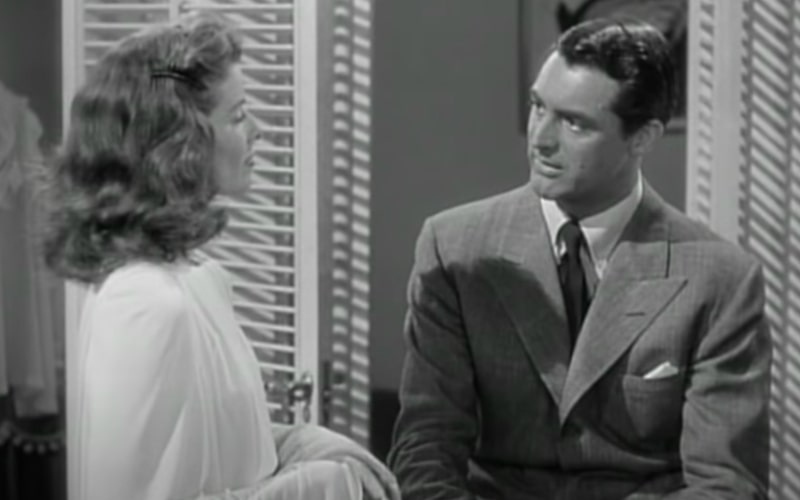
One of the most formidable on-screen pairings of all time is Grant and Katharine Hepburn. All of their collaborations are impressive, but none so much as The Philadelphia Story. The leading lady plays Tracy Lord, a role quite literally written with her in mind. Tracy is on the eve of her second marriage when her ex-husband, Dexter (played by Grant), shows up to complicate things. Rounding out the cast is a reporter expertly played by Jimmy Stewart, who especially shines when delivering the character’s drunk ramblings.
The film is invigorating — personally, I have yet to watch it without spending the runtime grinning ear to ear — but it also seems to have the risk of a highwire act. There’s never a dull moment, a statement that is at once a compliment and a recognition of how easily character development could have been sacrificed for the sake of the mile-a-minute, hijinks-heavy plot. But this doesn’t happen. The characters and performers are richly brought to life on screen, with perhaps Grant’s character demanding the most nuance of all. He was not especially kind to Tracy during their marriage and Grant is tasked with redeeming his character while maintaining the will-they-won’t-they dynamic at the heart of the story. It’s a hell of an accomplishment in a film full of brilliant accomplishments. (Anna Swanson)
His Girl Friday (1940)
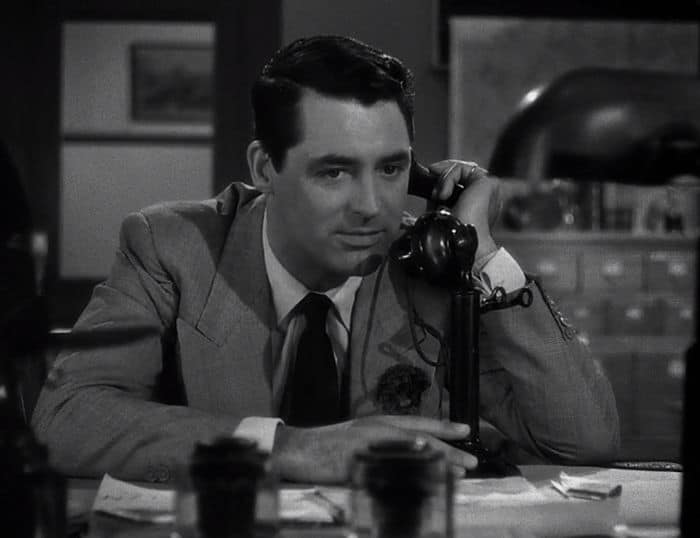
This Howard Hawks screwball comedy put Grant’s comedic chops to the test. Adapted from The Front Page, this version contains an element of romance that the 1931 film adaptation of the play did not include. Grant plays Walter Burns, a newspaper editor who is also the ex-husband to Hildy Johnson, played by Rosalind Russell. Walter is dead set on keeping Hildy in the newspaper business and away from her new fiancé (Ralph Bellamy) before they can tie the knot. He convinces Hildy to cover one last story, but the execution of a killer ends up being one hell of a final assignment.
In one of the fastest-talking movies ever, Grant was forced to ad-lib and improvise several of the best scenes in the movie. He breaks the fourth wall on a few occasions, creating the audience’s connection with Grant himself and not just his character. His chemistry with Russell is dynamite as they talk over one another, insult each other, and flirt aggressively. Their chemistry and ability to build off of one another’s high energy make for a perfect example of how sexually-driven screwball comedies could be without ever outwardly depicting or discussing sex. Grant is at his screwball peak in this movie, amping up the wit and charm that he does so well in his other comedies to a level unmatched by other leading men of his time.
Arsenic and Old Lace (1944)
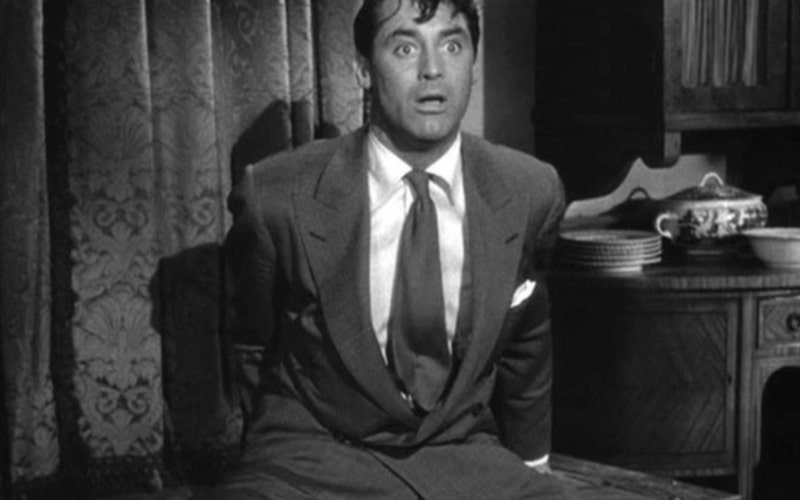
Whether watching for the first or hundredth time, this movie’s weirdness can always take you by surprise. The delightfully wacky black comedy from director Frank Capra (based on Joseph Kesselring’s play of the same name) unfolds over the course of Halloween night. When Grant’s Mortimer Brewster returns to the home of the aunts who raised him while on route to his honeymoon with a minister’s daughter, his plans are complicated by the arrival of a long-lost brother, some unexpectedly exhumed family secrets, and just a pinch of cyanide. Trust us when we say this movie has got everything.
By everything, we’re of course including one of Grant’s most bewildering and perfectly executed performances. His work is a masterclass in physical comedy, from his full-body double takes to his impossibly wide eyes. It’s just the right amount of ham for this over-the-top movie. Grant’s comedic prowess cements Arsenic as a Halloween classic and one of the finest — and funniest — films of his career. (Anna Swanson)
Notorious(1946)
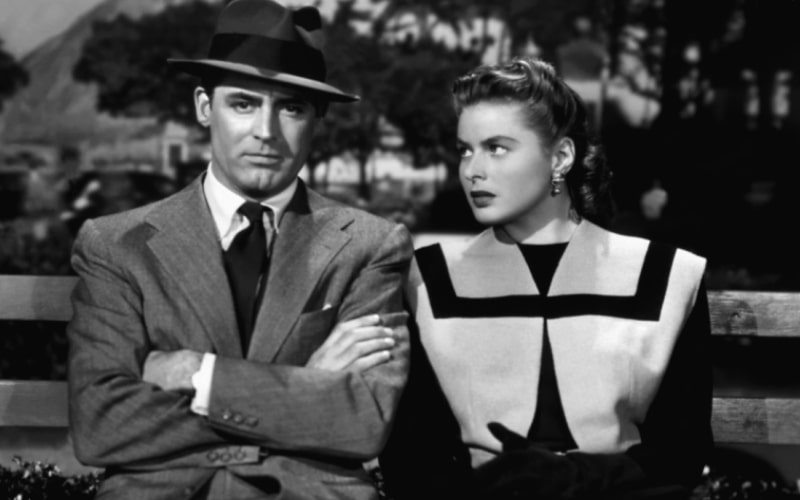
Alfred Hitchcock, perhaps better than any other director Grant worked with, knew exactly how to manipulate the actor’s talents and public persona. Notorious, a romantic noir co-starring Ingrid Bergman, sees Grant take on the most mature and complex character of his career.
Grant’s T. R. Devlin is an American agent who recruits Bergman’s Alicia. She’s the daughter of a Nazi spy, and he believes she can infiltrate an organization of pop’s former compatriots who moved to Brazil when things went south for the Third Reich. Her job is to seduce and obtain information from Claude Rains‘ Alex Sebastian, a friend of her father. The hitch? Devlin has started to fall for the woman he’s sending into enemy territory.
Frustrated and filled with self-loathing, Devlin attempts to put his personal feelings to the side for the sake of the mission, but that’s easier said than done. He often mistreats her, offering her little more than cold shoulders and mixed signals when she goes to him for guidance. It’s a complex role, requiring a delicate balance so as to not push Devlin’s cruelty to such a point that he’s irredeemable as a romantic hero. This is no easy feat, but Grant, naturally, pulls it off. (Anna Swanson)
An Affair to Remember (1957)
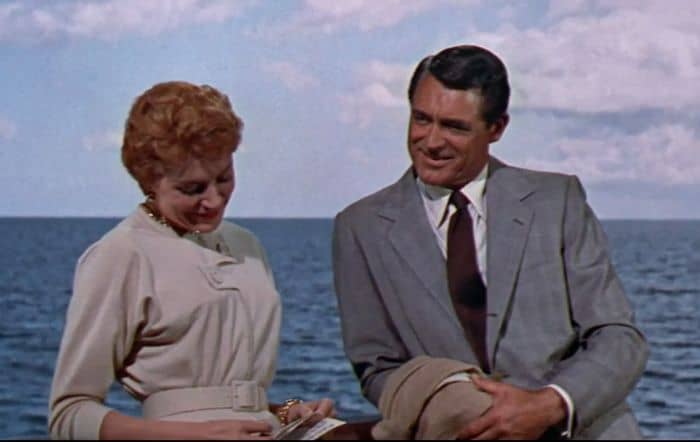
Even as he aged, Grant didn’t lose his capability to be the dashing romantic lead. In fact, some of his later films show a much more confident and suave Grant. That includes the iconic romance An Affair to Remember. Grant stars with Deborah Kerr as two not-so-single travelers who fall in love on a ship as they return to the United States. Their plan to reunite at the top of the Empire State Building has become one of the most recognizable aspects of the movie. It’s even referenced for a plot point in Norah Ephron’s Sleepless in Seattle.
Grant excels as the recently engaged playboy, clearly still containing just as much charm as he did twenty years prior with Mae West. The melodrama of this affair takes Grant into a different phase of his career, though. While he still did comedies in the 1950s and 1960s, he also expanded genres in the latter years of his career, including melodramatic romance. An Affair to Remember adds variety to Grant’s filmography and proves that he can make audiences cry as easily as he can make them laugh.
North By Northwest (1959)
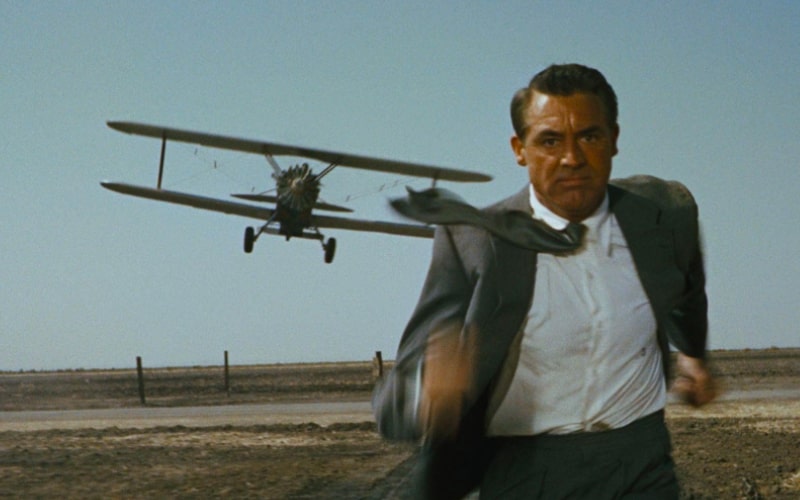
The most famous of Grant’s Hitchcock collaborations, North By Northwest is also a staple of espionage cinema. A case of mistaken identity sends Grant across America in order to escape death. After an iconic encounter with a crop duster, a chase across Mount Rushmore, and a… shall we say… innuendo-laden train, it’s clear to see why North By Northwest earned its legendary status.
It’s also clear that nearly three decades into his career, Grant still had it. He’s a perfect romantic lead opposite Eva Marie Saint, and the two have a wonderful screen dynamic with a palpable charge of chemistry between them. Grant also pulls off a trick he rarely did: playing an everyman. Grant’s Roger Thornhill, an advertising executive, is certainly not a spy. He’s caught off guard and thrown out of his depth, forced to find his way in a world he never expected to enter.
Grant, the actor who had built a career on his extraordinary charms and his effervescent confidence, brought his persona to characters that elevated them beyond run-of-the-mill. One can imagine that playing average would be the greatest challenge for him as an actor. Of course, with Grant in the role, a character could never truly be average. (Anna Swanson)
This article was co-written with Anna Swanson.
https://filmschoolrejects.com/essentiaEmily Kuincanek




